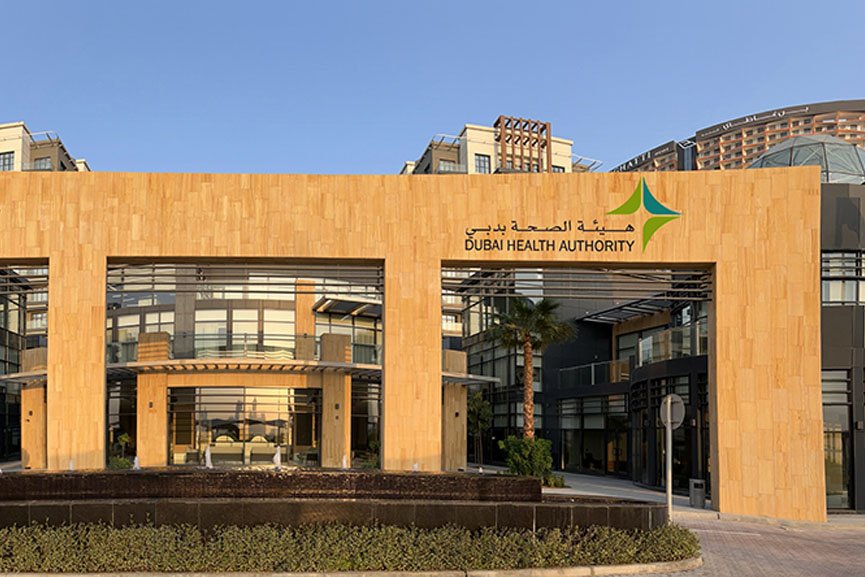The Dubai Health Authority (DHA) has officially launched the NABIDH Clinical Portal Training—a transformative initiative aimed at streamlining healthcare delivery across Dubai. Designed to boost efficiency, empower medical professionals, and improve patient care, this initiative marks a new chapter in the UAE’s digital health transformation.
What is NABIDH?
NABIDH, short for “National Unified Medical Record,” is a Dubai Health Authority initiative that connects public and private healthcare providers through a centralized, secure medical data platform. With NABIDH, a patient’s medical history, test results, diagnoses, prescriptions, and treatment plans are stored digitally and can be accessed by authorized doctors and specialists across facilities.
This ensures timely, accurate care and avoids the duplication of diagnostic tests or medication errors—two major pain points in global healthcare systems.

Why NABIDH Clinical Portal Training is a Game-Changer
While the NABIDH platform has been gradually rolled out over the years, the new clinical portal training focuses on hands-on education for healthcare professionals. Its goal: ensure that every user can confidently and effectively use the system to deliver better care.
According to DHA, this training empowers doctors, nurses, pharmacists, and allied health staff to:
- Navigate the clinical portal with ease
- Search and retrieve a patient’s full medical history in seconds
- Upload diagnoses, prescriptions, and lab results directly to the portal
- Maintain data security and patient confidentiality
- Coordinate treatment across multiple providers
Healthcare providers across Dubai—public and private—are expected to participate, making the training a unifying initiative across the sector.
How the Training Works
The NABIDH Clinical Portal Training is delivered through a mix of in-person workshops, interactive e-learning modules, and simulation labs. It is tailored to meet the different needs of users, from basic system use to advanced patient care coordination.
The training covers key topics like:
- Logging in and navigating the NABIDH dashboard
- Updating and accessing patient records
- Managing appointments and referrals
- Complying with UAE data privacy regulations
- Using analytics tools for smarter clinical decisions
Clinicians are awarded certification upon completion, making this a valued addition to professional development.
DHA’s Vision: A Unified, Smart Health Ecosystem
The NABIDH Clinical Portal is not just a tech solution—it is part of Dubai’s wider strategy to become a world leader in smart healthcare.
Dr. Ramadan Ibrahim, Director of Health Regulation at DHA, said during the launch event:
“This training is a critical step toward achieving a unified healthcare system in Dubai, where doctors have all the tools and information they need to offer the highest standards of care.”
He added that the new training will help reduce medical errors, streamline workflows, and offer a safer, more connected experience for both patients and healthcare providers.
Benefits of NABIDH for Healthcare Professionals

Medical practitioners in Dubai have long faced challenges navigating a fragmented healthcare system, especially when patients visit multiple facilities. NABIDH Clinical Portal Training solves many of these issues by enabling:
- Instant access to patient history, regardless of where they were previously treated
- Better coordination between general practitioners and specialists
- Reduced paperwork and redundant testing
- Accurate, consistent diagnoses
- Seamless patient handovers
Dr. Aisha Al Khayyat, a family physician in Dubai, described the system as “a breath of fresh air” after years of working with incomplete patient data.
Benefits for Patients
The greatest beneficiaries of NABIDH Clinical Portal Training may be patients themselves. Here’s how:
- Faster diagnosis and treatment plans
- Fewer repeated tests, saving time and money
- Reduced chances of medication errors
- More accurate and personalized care
- Greater privacy and security of health data
For expats, who often move between providers, this centralized record system is a game-changer. No longer will patients need to carry medical records or repeat their history to every new doctor.
Private Sector Participation
One of the strongest features of the NABIDH program is its inclusivity. It is not limited to government hospitals—private healthcare facilities across Dubai are joining the system.
Major hospital groups such as Mediclinic, Aster DM Healthcare, NMC, and Emirates Hospitals are actively integrating NABIDH and sending staff for training.
This collaboration between public and private healthcare players ensures that all patients, regardless of where they receive care, benefit from the same level of connected service.
Challenges and Future Outlook
As with any new system, the rollout of NABIDH Clinical Portal Training comes with its challenges. Some healthcare professionals have expressed concern about adapting to new technologies, especially those unfamiliar with digital platforms.
To address this, the training includes personalized support and troubleshooting. DHA has also set up a NABIDH support desk to assist providers with technical issues, feedback, and continuous updates.
Looking ahead, DHA plans to introduce AI-powered modules in NABIDH to help clinicians predict health risks and suggest treatment options. With ongoing improvements and user feedback, the portal is set to become the cornerstone of a futuristic healthcare model in Dubai.
A Step Toward National Health Integration

Though NABIDH currently operates within Dubai, there are plans to link it with other emirate-level systems across the UAE. Eventually, patients and doctors will enjoy seamless access to health records nationwide, creating a truly integrated national medical record system.
Such a vision aligns with the UAE’s wider goals of digitization, innovation, and excellence in public service.
How to Get Involved
All licensed healthcare providers in Dubai can register for the NABIDH Clinical Portal Training through the DHA website or via their facility’s management. Training is mandatory for professionals who work in patient-facing roles and will eventually be a requirement for license renewals.
Healthcare organizations can also request on-site training for larger teams to ensure uniform knowledge and skill levels across departments.
Read More: RAK Celebrates National Health Day with Free Medical Camps













